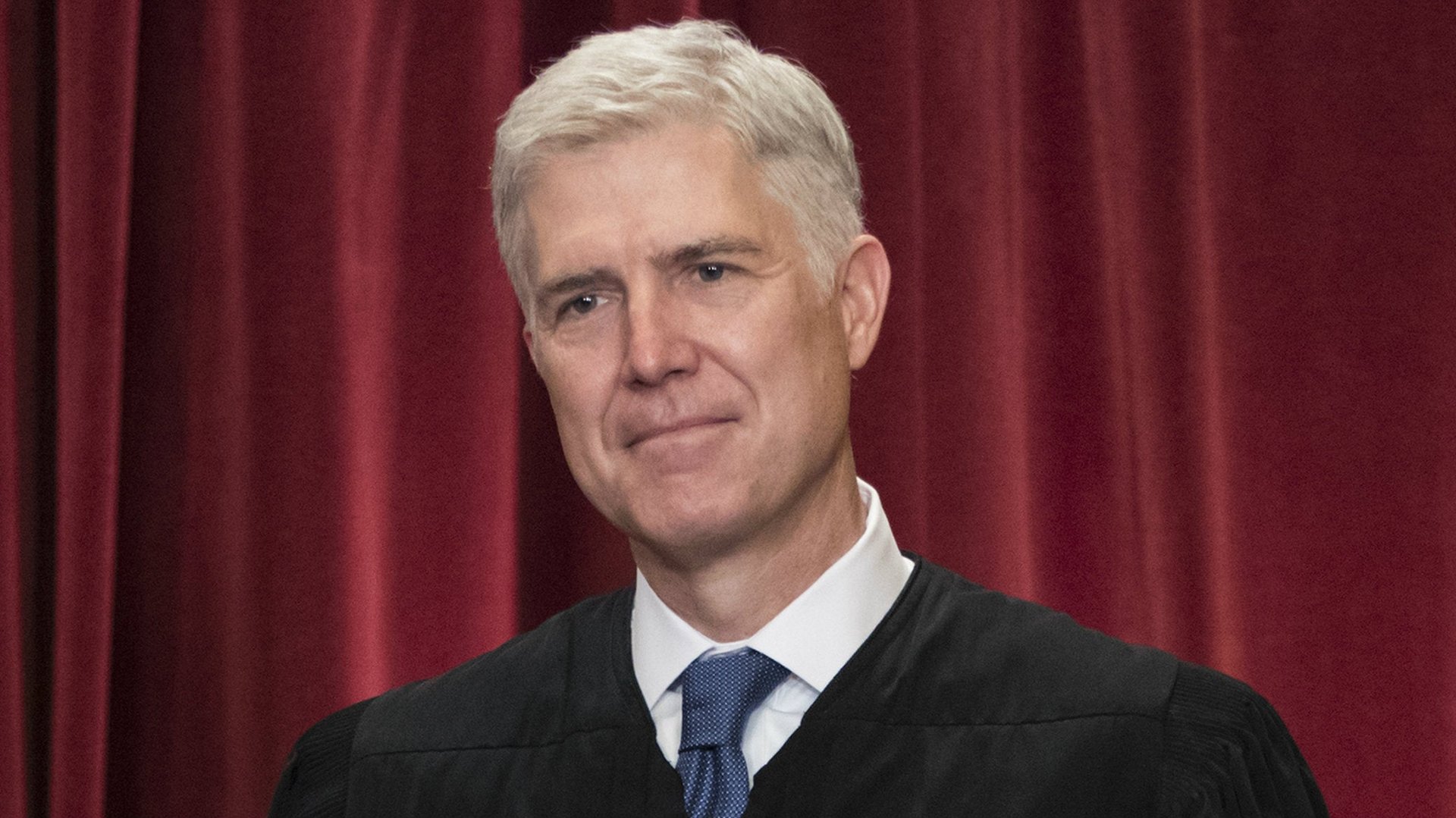Neil Gorsuch’s early opinions reveal a deeply conservative Supreme Court justice
During a US presidential debate in October, then candidate Donald Trump said he would be looking to appoint Supreme Court justices “in the mold” of the late Antonin Scalia. Neil Gorsuch, sworn in on April 10, has yet to disappoint.


During a US presidential debate in October, then candidate Donald Trump said he would be looking to appoint Supreme Court justices “in the mold” of the late Antonin Scalia. Neil Gorsuch, sworn in on April 10, has yet to disappoint.
Gorsuch, 49, is at the very beginning of a lifetime appointment, but his recent stances on the travel ban, LGBT parents’ rights, and gun laws say a lot about what’s to come. In his first few months, Gorsuch has sided four times with justice Clarence Thomas, thought to be the most conservative judge on the bench.
“[Today] we got a very good indication that [Gorsuch] will be most like Justice Scalia, and often voting with Justices Thomas and Alito, making Justice Gorsuch one of the most, or most, conservative Justices,” Rick Hasen, a professor of law and political science at UC Irvine, wrote at Election Law Blog on June 26.
Travel ban
In a ruling today on Donald J. Trump v International Refugee Assistance Project, also known as the revised version of Trump’s travel ban on visitors from six Muslim-majority countries, Gorsuch sided with Thomas (pdf) in dissenting from a partial reinstatement. (Gorsuch and Thomas both thought the ban should be reinstated fully until the oral arguments hearing in October.) Now exempted from that reinstatement are visitors with work permits, student visas, and relatives in the US.
In the dissent, Thomas wrote that trying to determine “whether individuals from the six affected nations who wish to enter the United States have a sufficient connection to a person or entity in this country” would be too difficult.
Gay rights
When Gorsuch was nominated, Lambda Legal, an organization that works to protect the civil rights of the LGBT and HIV-positive communities, issued its first ever opposition to a SCOTUS nomination before a confirmation hearing. “[His] extreme record suggests he could roll back the tremendous progress our country has made towards recognizing the fundamental rights LGBT people and everyone living with HIV,” Lambda Legal CEO Rachel Tiven said at the time.
On June 26, in Marisa N. Pavan v. Nathaniel Smith, the Supreme Court struck down an Arkansas law that does not automatically list the mother’s spouse as co-parent on birth certificates for same-sex parents. Gorsuch dissented (pdf), noting that exclusion from a birth certificate is not a violation of one’s constitutional rights. He writes: “Nothing in Obergefell [the Supreme Court case legalizing gay marriage] indicates that a birth registration regime based on biology… offends the Constitution.”
Guns
Also on June 26, the Supreme Court declined to hear a case on whether the Second Amendment includes the right to carry firearms in public. As a result, the Court left in place a ruling by the US Court of Appeals for the 9th Circuit, which supported a San Diego, California sheriff’s requirement that gun owners seeking a permit for a concealed weapon must show “good cause” beyond fearing for one’s personal safety.
Gorsuch and Thomas dissented, saying that the state of California should not deny its citizens the right to bear arms in self-defense. “The Court’s decision… reflects a distressing trend,” they wrote. “The treatment of the Second Amendment as a disfavored right.”